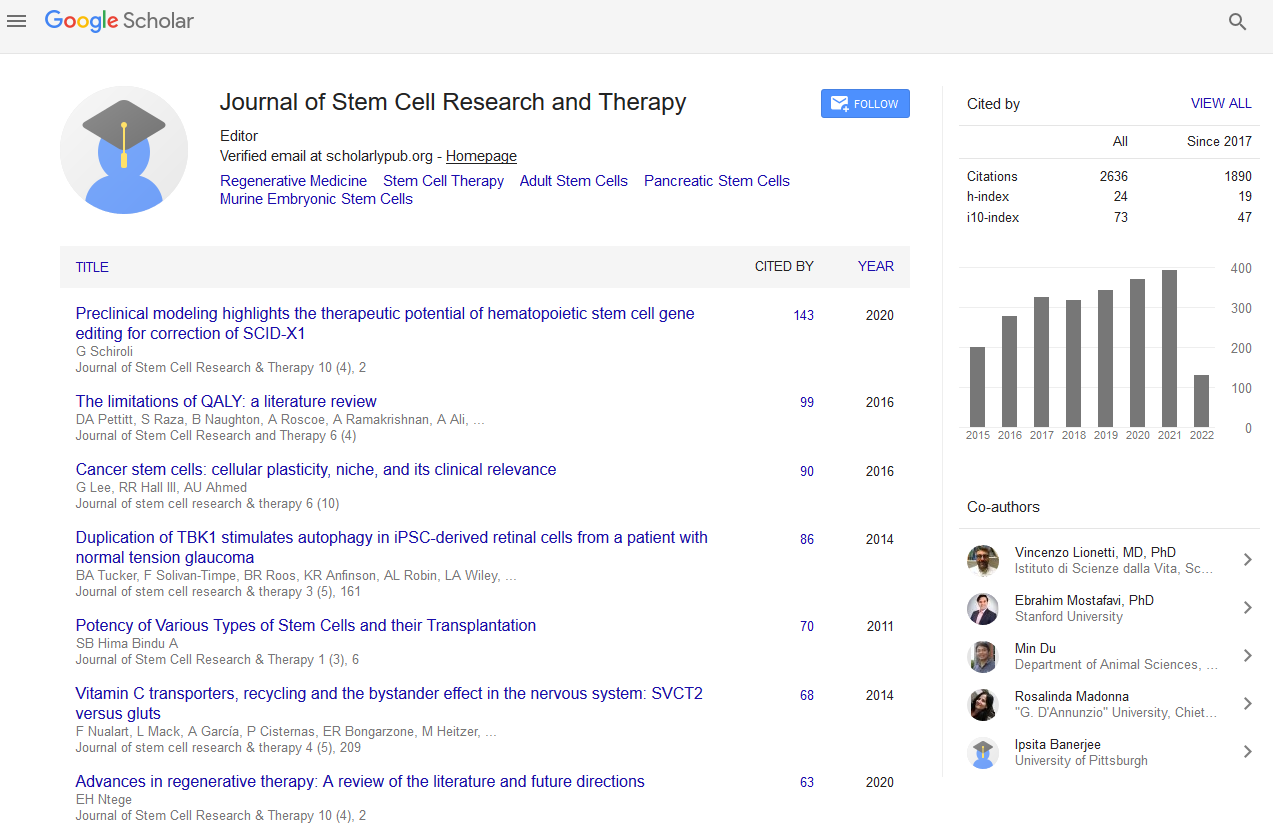Indexed In
- Open J Gate
- Genamics JournalSeek
- Academic Keys
- JournalTOCs
- China National Knowledge Infrastructure (CNKI)
- Ulrich's Periodicals Directory
- RefSeek
- Hamdard University
- EBSCO A-Z
- Directory of Abstract Indexing for Journals
- OCLC- WorldCat
- Publons
- Geneva Foundation for Medical Education and Research
- Euro Pub
- Google Scholar
Useful Links
Share This Page
Journal Flyer

Open Access Journals
- Agri and Aquaculture
- Biochemistry
- Bioinformatics & Systems Biology
- Business & Management
- Chemistry
- Clinical Sciences
- Engineering
- Food & Nutrition
- General Science
- Genetics & Molecular Biology
- Immunology & Microbiology
- Medical Sciences
- Neuroscience & Psychology
- Nursing & Health Care
- Pharmaceutical Sciences
Modulation of host immunity against West Nile virus infection
International Conference on Regenerative & Functional Medicine
November 12-14, 2012 Hilton San Antonio Airport, USA
Fengwei Bai
Accepted Abstracts: J Stem Cell Res Ther
Abstract:
West Nile virus (WNV), a mosquito-transmitted RNA virus, causes severe human and animal infections in North America. There are currently no specific or proven treatments available for human WNV infections. The host immune response to viral infections is mediated by innate responses followed by adaptive immunity. A cytokine imbalance induced by infection can contribute to immunopathogenesis during viral infections. Interleukin-10 (IL-10) and macrophage migration inhibitory factor (MIF) are elevated both in vitro and in vivo following WNV infection. WNV infection is markedly diminished in IL-10 deficient ( IL-10 -/- ) and MIF deficient ( MIF -/- )mice. Pharmacologic blockade of IL-10 and MIF signaling by neutralizing antibodies increases survival of WNV-infected mice. Increased production of antiviral cytokines in IL-10 -/- mice is associated with more efficient control of WNV infection.MIF promotes WNV invasion of the brain by compromising the integrity of the blood-brain- barrier (BBB).Interestingly, IL-10 is over-expressed in MIF -/- mice upon WNV infection and blockade of IL-10 signaling increases MIF -/- mice resistance to WNV infection suggesting that simultaneously blocking MIF and IL-10 signaling will further increase resistance to WNV infection.
Biography :
Dr. Fengwei Bai has completed his Ph.D from Fudan University in 2002 and conducted postdoctoral training at Yale University School of Medicine. He is an assistant professor at the University of Southern Mississippi. Dr. Bai has published more than 20 papers in reputed journals and serving as an editorial board member of Internal Medicine - Open Access.


